- AI
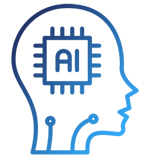
Artificial Intelligence

Smart Products & Services
We follow Smart Products & Services

Intelligent Business Functions & Processes
We follow Intelligent Business Functions & Processes

Robotic Process Automation
We follow Robotic Process Automation

Personalized
healthcareWe follow Personalized healthcare

Identifying at-risk patients
We follow Identifying at-risk patients

Optimized routing and scheduling
We follow Optimized routing and scheduling
- ML
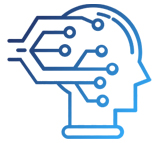
Machine Learning

Predictive
AnalyticsWe follow Predictive Analytics

Service Personalization
We follow Service Personalization

NLP
We follow NLP (Natural Language Processing)

Stock Market Forecasting
We follow Stock Market Forecasting

Fraud Prevention
We follow Fraud Prevention

Recommender engines
We follow Recommender engines
- blockchain

Blockchain

Public Blockchain
We follow Public Blockchain

Private Blockchain
We follow Private Blockchain

DEFI
We follow DEFI Blockchain

Initial stake pool offering development
We follow initial stake pool offering development
- IOT
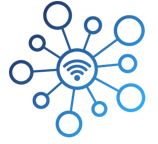
Internet of Things
- AR
- Business Solutions
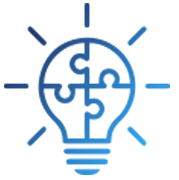
Business Solution

Business Performance Management
We follow Business Performance Management

Decision Making & Big Data Analytics
We follow Decision Making & Big Data Analytics

Enterprise Data Management
We follow Enterprise Data Management
- Apps

Apps

Native Apps
We follow Native Apps

Cross Platform Apps
We follow Cross Platform Apps

Web Apps
We follow Web Apps

Hybrid Apps
We follow Hybrid Apps

Cloud Native Apps
We follow Cloud Native Apps
- Lab

Top 6 Examples Of Artificial Intelligence In Healthcare Industry
We are going through the fourth industrial revolution. There is technology all around us that we never thought would exist. That technology is heavily influencing everything that we do. Whether we talk about our personal lives, professional lives, our social lives, we see the influence of technology. It has become ubiquitous in all aspects of our lives. Many of these technologies have disrupted the way we do business.
One of the technologies that has disrupted a lot of industries is Artificial Intelligence (AI). Ever since its inception, people have been debating whether it is a boon for us or a system that will be the end of us. But as the debate goes on, we cannot deny that AI has afforded us a lot of benefits that we didn’t have before. A lot of industries are using AI to boost their business and grow. One such industry is the healthcare industry. Everyone related to the industry like doctors, nurses, paramedical staff, medical management, insurance companies and more have been impacted by this technology. According to a report by Accenture, the US healthcare industry can save around $150 billion annually by using AI-based solutions for healthcare.
So, how can Artificial Intelligence help the healthcare industry and how are they using it to grow? Here are some examples for you to consider.
1. Managing Medical Records and Other Data
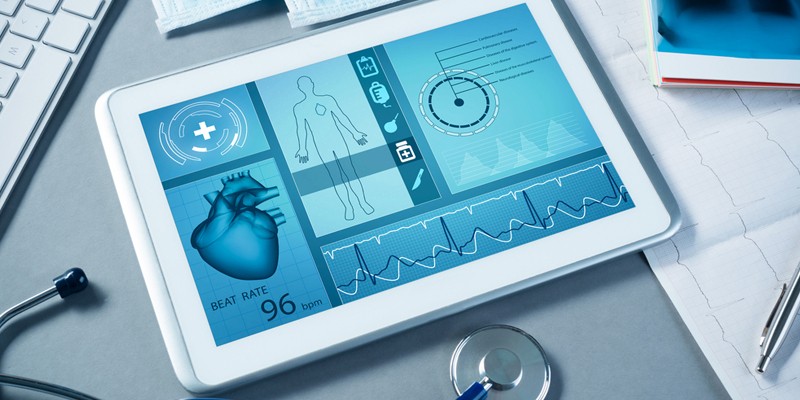
One of the most important things in any healthcare facility is the data. There is huge amounts of data regarding patients’ medical records, management, and other aspects of the facility. You need a lot of time and energy to sift through the data and analyse it. Now, healthcare professionals are working with AI consultancy providers to work with AI-based apps that can automate the entire process and make it cost-efficient as well as more effective. AI-based apps collect, store, format, and analyse the data to provide the results that healthcare professionals need.
2. Doing Repetitive Jobs
AI is not only good for data collection and analysis but other purposes as well in a healthcare institution. One way that AI is helping healthcare professionals is by analysing the various types of tests that patients need to do. This is a tedious and repetitive task and AI is doing it better and faster than before. These tests include X-Rays, CT scans, and others. Over time, a lot of data accumulates, especially in the radiology and cardiology departments of healthcare institutions. AI strategy makers have partnered with healthcare professionals to come up with apps that can look at the tons of data and analyse it in a fraction of the time that it used to take before.
3. Treatment Design
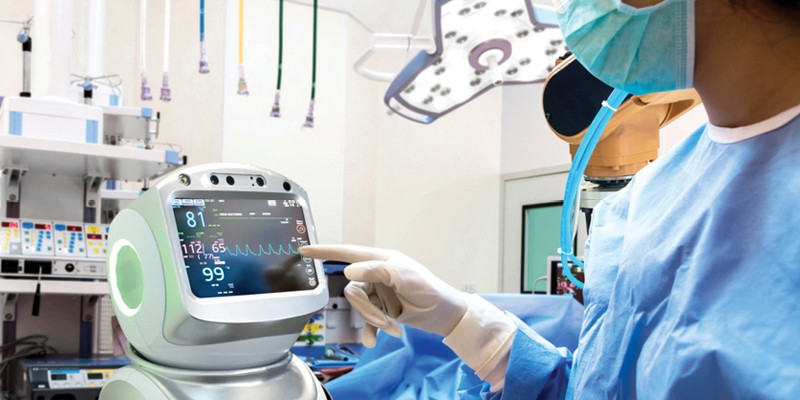
AI is also helping doctors in the field by making their work easier and more effective. One of the ways that it is doing so is by taking all the notes and reports that they have for their patients and analysing them for patterns. This can include the patient’s file as well as personal notes that a doctor makes for any of his patients, reports, lab results, and more. Once all the data is collected, the AI-based program helps the doctors in selecting the right course of treatment for the patient. This eliminates the human error aspect and quickens up the pace of the work.
4. Digital Consultation

Various apps around the world can help identify your ailment and give you the right course of treatment. These apps use AI to collect your personal medical history. Then they compare that history against the common medical knowledge that they have collected over time. Whenever users enter their symptoms in the app, those symptoms are then compared against that medical knowledge that contains a complete database of illnesses. Once they analyse the information, they offer a recommended course of action.
5. Virtual Nurses

There are now apps that can help monitor a patient’s condition and make sure that the recommended treatment is followed when the doctor is not around. These apps use machine learning to learn the patient’s history, the doctor’s recommendation, as well as their medical knowledge and make sure that the patient’s treatment is going according to the plan.
There is also an app developed for the Boston Children’s Hospital that can give you basic healthcare information about children’s ailments. If you are a parent, you can ask this app all your questions and it will give you the answers about the ailments, medication, and more. It will also tell you if you need to visit a doctor or not.
6. Medication Management

Another app that has been making waves around the world is the AiCure app developed by the National Institute of Health. This app monitors the patient’s medication use. This app uses a smartphone’s webcam to monitor the patients and make sure that they are indeed taking their medication. It also helps them manage their conditions. Thanks to this app, healthcare professionals can take care of patients who have a history of going against the doctor’s advice as well as patients who are undergoing a clinical trial. Also, patients who have serious medical conditions can benefit from this app.
Conclusion
These are just a few of the ways that AI is bringing change in the healthcare industry and helping out healthcare professionals with their work. As technology advances, more and more institutions will start using AI and it will provide more benefits to these institutions as well as the people who work there and the patients who visit.
Also Read: What Does The Future Hold For Modern Software Development?

















































Leave a Reply